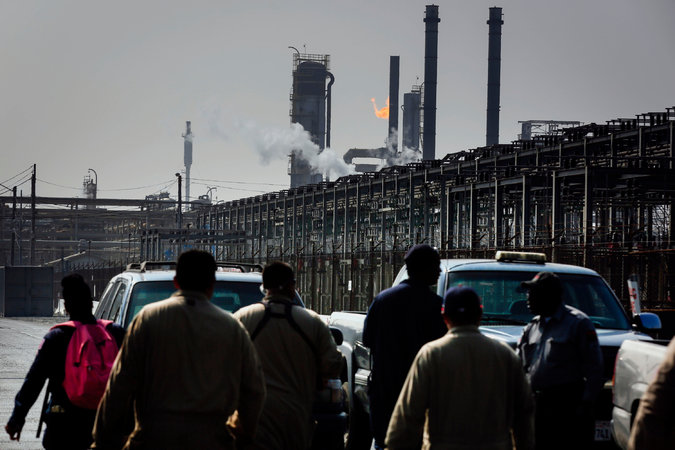The New York attorney general has begun an investigation of Exxon Mobil to determine whether the company lied to the public about the risks of climate change or to investors about how such risks might hurt the oil business.
According to people with knowledge of the investigation, Attorney General Eric T. Schneiderman issued a subpoena Wednesday evening to Exxon Mobil, demanding extensive financial records, emails and other documents.
The investigation focuses on whether statements the company made to investors about climate risks as recently as this year were consistent with the company’s own long-running scientific research.
The people said the inquiry would include a period of at least a decade during which Exxon Mobil funded outside groups that sought to undermine climate science, even as its in-house scientists were outlining the potential consequences — and uncertainties — to company executives.
Kenneth P. Cohen, vice president for public affairs at Exxon Mobil, said on Thursday that the company had received the subpoena and was still deciding how to respond.
“We unequivocally reject the allegations that Exxon Mobil has suppressed climate change research,” Mr. Cohen said, adding that the company had funded mainstream climate science since the 1970s, had published dozens of scientific papers on the topic and had disclosed climate risks to investors.
Mr. Schneiderman’s decision to scrutinize the fossil fuel companies may well open a new legal front in the climate change battle.
The people with knowledge of the New York case also said on Thursday that, in a separate inquiry, Peabody Energy, the nation’s largest coal producer, had been under investigation by the attorney general for two years over whether it properly disclosed financial risks related to climate change. That investigation was not previously reported, and has not resulted in any charges or other legal action against Peabody.
Vic Svec, a Peabody senior vice president, said in a statement, “Peabody continues to work with the New York attorney general’s office regarding our disclosures, which have evolved over the years.”
Because natural gas creates far less carbon dioxide than coal when burned for electricity, the company expects to be a prime beneficiary of President Obama’s plan to limit emissions. Exxon Mobil has also endorsed a tax on emissions as a way to further reduce climate risks.
Whether Exxon Mobil began disclosing the business risks of climate change as soon as it understood them is likely to be a major focus of the New York case. The people with knowledge of the case said the attorney general’s investigators were poring through the company’s disclosure filings made since the 1970s, but were focusing in particular on recent statements to investors.
Exxon Mobil has been disclosing such risks in recent years, but whether those disclosures were sufficient has been a matter of public debate.
Last year, for example, the company warned investors of intensifying efforts by governments to limit emissions. “These requirements could make our products more expensive, lengthen project implementation times and reduce demand for hydrocarbons, as well as shift hydrocarbon demand toward relatively lower-carbon sources such as natural gas,” the company said at the time.
But in another recent report, Exxon Mobil essentially ruled out the possibility that governments would adopt climate policies stringent enough to force it to leave its reserves in the ground, saying that rising population and global energy demand would prevent that. “Meeting these needs will require all economic energy sources, especially oil and natural gas,” it said.
Wall Street analysts on Thursday were uncertain whether the case would inflict long-term damage on the company, which has already suffered from a plunge in commodity prices.
“This is not good news for Exxon Mobil or Exxon Mobil shareholders,” said Fadel Gheit, a senior oil company analyst at Oppenheimer & Company. “It’s a negative, though how much damage there will be to reputation or performance is very hard to say.”
























Laissez un commentaire Votre adresse courriel ne sera pas publiée.
Veuillez vous connecter afin de laisser un commentaire.
Aucun commentaire trouvé